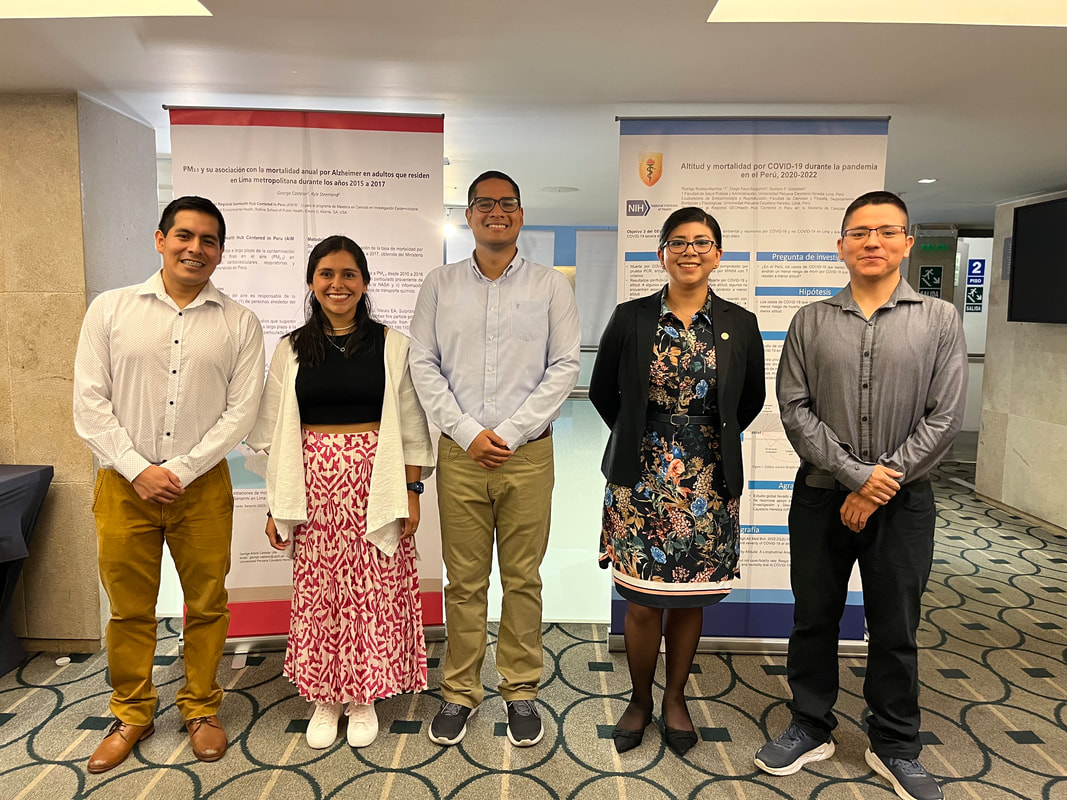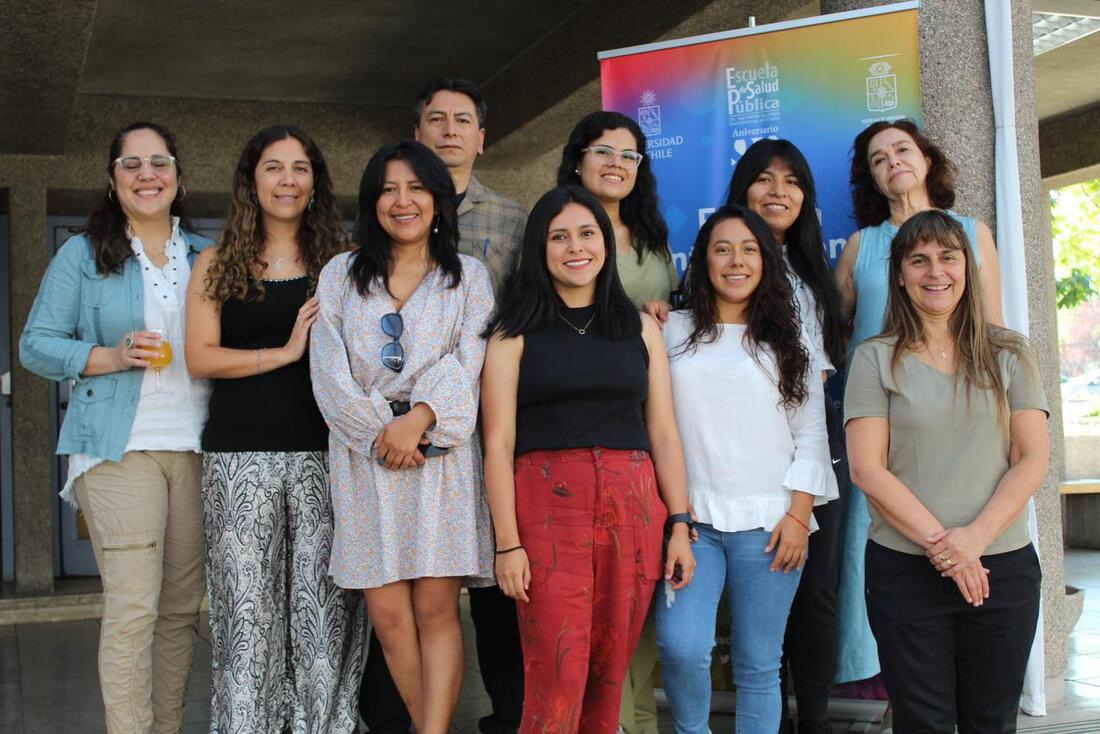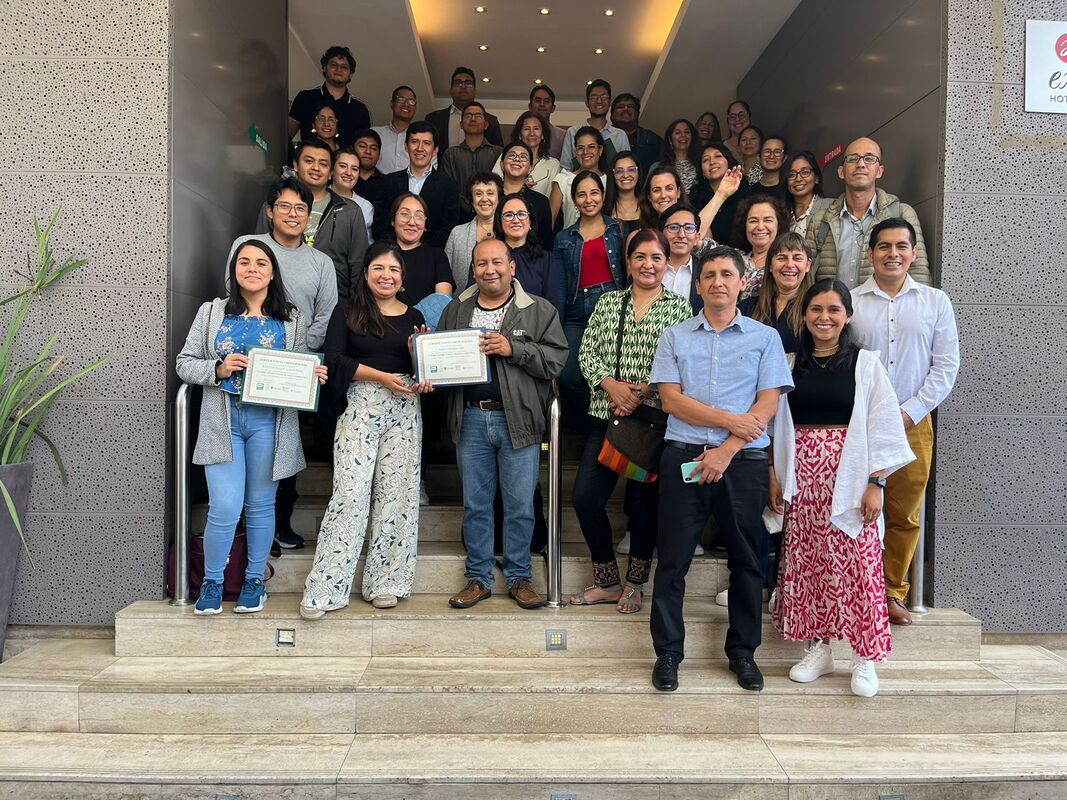Phase 2: Training Initiatives
Our goal is to expand the work done during the current period of our collaborative research and research training center for environmental health, GEOHealth Hub in Peru, with impact in neighboring countries of Ecuador and Bolivia as we expand our partner network and invite trainees from those countries. We bring together an exceptionally strong team of environmental health researchers from Universidad Peruana Cayetano Heredia (UPCH), Emory University, Johns Hopkins University (JHU), and Universidad de Chile (U. Chile), along with a network of non-profit and governmental partners with extensive training and research experience in Peru. Our proposed training activities will support the work in our paired renewal proposal (U01) and increase research capacity training in the country. Our overall objective of research study is to build capacity in ambient air pollution (AAP) research in Peru and study the association between AAP and cardiovascular and respiratory conditions, as well as COVID-19, and Alzheimer’s disease (AD), two diseases where the association with AAP is not as well established. The linked U01 research grant proposal describes in detail our proposed research on the short and long-term effects of AAP on cardiorespiratory disease, Alzheimer’s disease, and COVID-19 in Peru. We also plan to study whether COVID-19 in Lima is associated with long- term cognitive deficits.
Our training programs will include annual short courses in Peru, Chile, and the USA, one-on-one mentoring in research to Peruvians investigators by US and Chilean faculty, and graduate programs in public health in Peru. Recruitment of trainees will be conducted in Peru, Bolivia, and Ecuador and their selection will be tasked to our Advisory Oversight Committee (AOC).
Our training programs will include annual short courses in Peru, Chile, and the USA, one-on-one mentoring in research to Peruvians investigators by US and Chilean faculty, and graduate programs in public health in Peru. Recruitment of trainees will be conducted in Peru, Bolivia, and Ecuador and their selection will be tasked to our Advisory Oversight Committee (AOC).
Support long-term graduate training programs
|
Support long-term, graduate training programs, around the scientific area of ambient air pollution (AAP) research in Peru, and its association with cardiovascular and respiratory conditions, including COVID-19, as well as Alzheimer’s disease (AD). We plan to fund full time master degrees and doctoral training at our partner institution in Peru. Specifically, we will: A) Fund promising young investigators to train in the Science in Epidemiological Research M.S. program offered by FASPA ; these trainees will be involved in each of the specific aims outlined in the research proposal.
|
Mentorship in research skills to Peruvian investigators
Provide individualized mentorship in research skills to Peruvian investigators. This goal will be achieved through one-on-one mentorship by senior investigators from the USA and Chile to junior investigators involved in our research teams in Peru. This 1:1 mentoring will occur in Peru, Chile, and/or the US.
Research Courses
|
Offer short-term courses to a wide audience of health scientists and public health professionals from Peru, Bolivia, and Ecuador, in topics and research in the association between AAP and cardiovascular and respiratory conditions, including COVID-19, and Alzheimer’s disease (AD).
As part of our training initiatives, we offer an annual course in environmental health at the well-established Universidad de Chile Summer School (EIV). The GEOHealth Hub fully funds 5 qualified applicants yearly to attend two-weeks of environmental health topics on issues of environmental and occupational health, epidemiology and biostatistics with nationally and internationally renowned speakers. Students attending the EIV have the added benefit of attending courses on other public health topics offered in addition to those in environmental health. Content level is more detailed and taught at a more advanced level, so it is suitable for a student who attended the short course in Perú previously. A second training initiative is an annual one-week workshop on environmental health in Lima for professionals from Perú, Bolivia, and Ecuador with instructors from Emory University, University of Georgia, Johns Hopkins University, Universidad de Chile, and Universidad Peruana Cayetano Heredia. The GEOHealth Hub fully funds 25 qualified applicants yearly to attend. This training course focuses on core topics of environmental health, i.e., environmental epidemiology, statistics, exposure assessment, and toxicology, as well as bioethics, and practical skills as STATA, study designs, and data management. It also includes case studies in environmental health, preferentially from Perú. |




